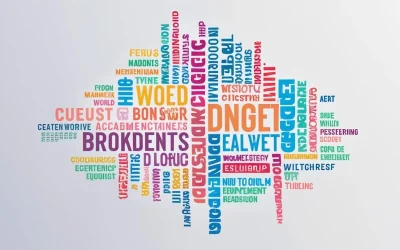The present perfect continuous tense is employed to discuss a time that falls somewhere between the past and the present moment.
The speaker is contemplating an action or situation that commenced within that time frame, and although it might not have concluded, the speaker is concerned with both the ongoing process and the potential result. This process may either still be ongoing or may have recently concluded.
What is your English level?
Find out your A1 A2 B1 B2 C1 C2 level of English with our online test and receive your English certificate.
Actions that started in the past and continue in the present
She has been waiting for you all day (= and she’s still waiting now).
I’ve been working on this report since eight o’clock this morning (= and I still haven’t finished it).
They have been travelling since last October (= and they’re not home yet).
Actions that have just finished, but we are interested in the results
She has been cooking since last night (= and the food on the table looks delicious).
It’s been raining (= and the streets are still wet).
Someone’s been eating my chips (= half of them have gone).
Forming the present perfect continuous
The present perfect continuous is made up of two elements: the present perfect of the verb ‘to be’ (have/has been), and the present participle of the main verb (base+ing)
| Subject | +has/have been | +base+ing |
| She | has been | swimming |
Affirmative: She has been / She’s been running.
Negative: She hasn’t been running.
Interrogative : Has she been running?
Interrogative negative: Hasn’t she been running?
Example: present perfect continuous, TO LIVE
| Affirmative | Negative | Interrogative |
|---|---|---|
| I have been living | I haven’t been living | Have I been living? |
| You have been living | You haven’t been living | Have you been living? |
| He, she, it has been living | He hasn’t been living | Has she been living? |
| We have been living | We haven’t been living | Have we been living? |
| You have been living | You haven’t been living | Have you been living? |
| They have been living | They haven’t been living | Have they been living? |
Verbs without continuous forms
With verbs not normally used in the continuous form, use the simple present perfect instead (verbs such as: know, hate, hear, understand, want).
I’ve wanted to visit China for years.
She’s known Robert since she was a child.
I’ve hated that music since I first heard it.
I’ve heard a lot about you recently.
We’ve understood everything.
Are you C1 Advanced English?
Get your C1 Advanced English certificate now!
✓ Add your certificate to your resume
⭐ ⭐ ⭐ ⭐ ⭐
I am Nilay, an experienced English Language Assessment Director at the International English Test, where I have been working full-time since February 2020. I specialize in helping people worldwide validate their English proficiency through comprehensive assessments and certifications.
Before joining the International English Test, I worked as a self-employed English Language Assessment Consultant from January 2015 to December 2019. During this time, I assisted companies and individuals in improving their language skills, helping them achieve their academic and professional goals.
I hold a degree in Engineering and have also studied at Shafston International College in Australia. My educational background has equipped me with the tools to make a meaningful impact in the field of English language learning. Additionally, I enjoy sharing my expertise through articles that explore effective teaching methods and language assessment strategies, contributing to the International English Test and the broader assessment community.





